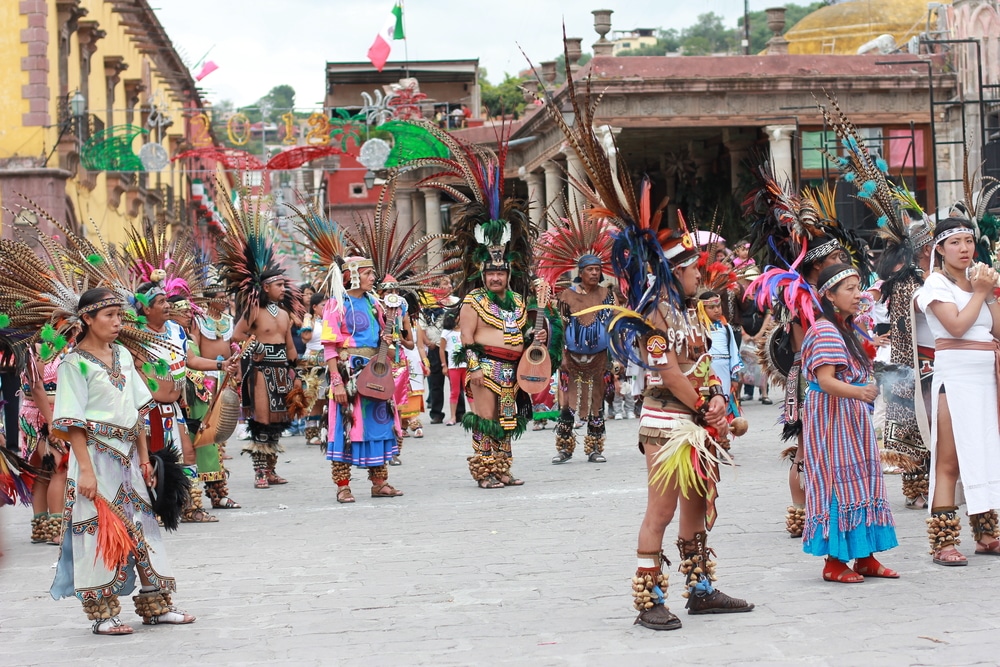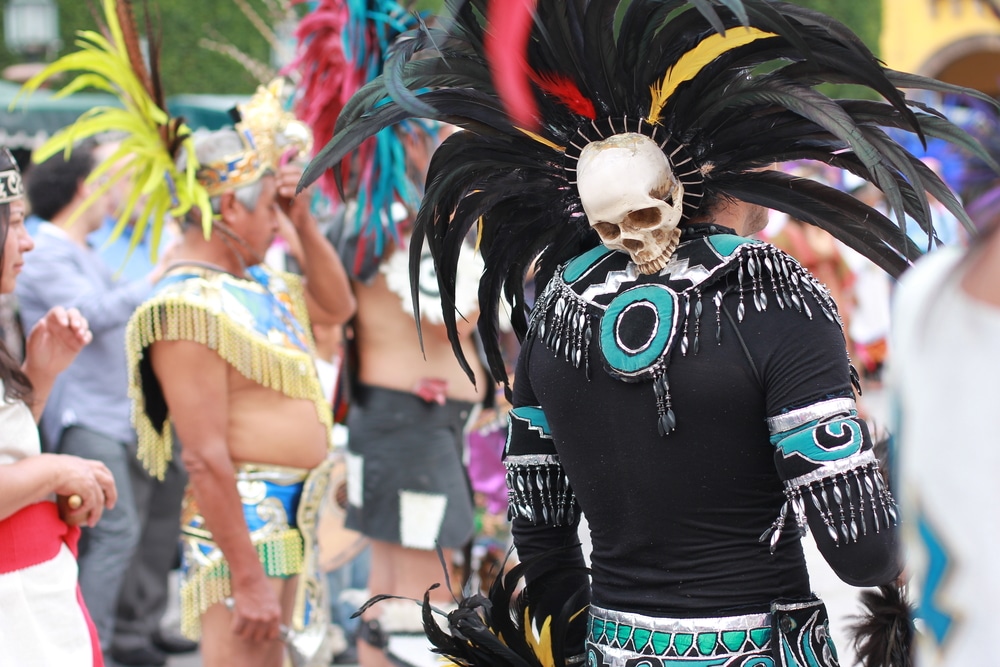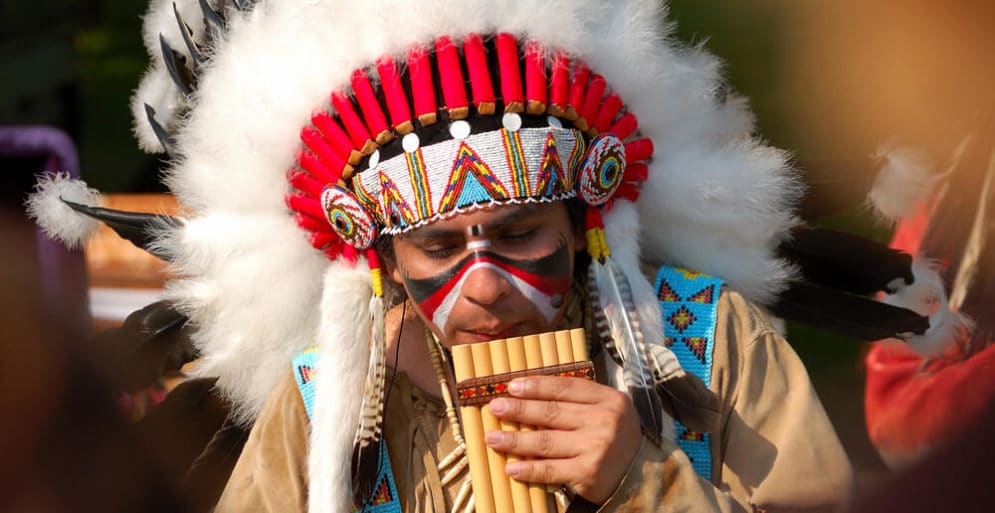-
By Admin
Indigenous Tribes in New York Taking the Lead on Legal Marijuana
In March 2021, the use of recreational marijuana was legalized in New York State after Gov. Andrew Cuomo signed the cannabis legislation.
However, the state is still in the process of establishing regulations on marijuana cultivation and sales. Most recreational users will have to wait for up to 18 months before the first legal marijuana sales in New York.
Despite this, some Native American tribes are taking steps to open marijuana businesses on their reservations.
Marijuana Laws and Indigenous Tribes
The U.S. federal government recognizes Native American Indian tribes as sovereign nations. Since there are no marijuana regulations relating to these tribes, they have the inherent authority to legalize or ban cannabis within their territories.
In recent years, some indigenous tribes have pursued marijuana cultivation programs on their tribal lands. Although some have implemented lucrative programs, others face strong resistance from federal and state drug enforcement agencies.
Tribes entering the marijuana market could encounter jurisdictional issues with the federal government regarding drug-related crimes. To avoid this, tribes usually wait until surrounding states have legalized marijuana before taking action.
St. Regis Mohawk Tribe
They are one of the tribes currently leading the marijuana efforts in the state. This Indian reservation’s territory is located in northern New York.
On June 28, 2021, St. Regis Mohawk became the first Native American tribe to authorize the adult use of recreational marijuana in the state.
Under the law, dispensaries must be licensed by the tribe; while growing, processing, and sales must occur on tribal lands. Adult tribal members are allowed to grow up to twelve plants.
The recently passed cannabis ordinance followed a tribal referendum, which was held in December 2019. At the time, tribal voters approved the development of marijuana regulations and eventual adoption.
The Tribal Council considers the cannabis ordinance as “historic,” representing the first adult-use marijuana law adopted by a tribe in New York.
It is also the first in the country to license tribal members and tribal member-owned marijuana businesses. This is a unique route compared to many other tribes that often establish tribally owned and operated businesses.
The Tribal Cannabis Exchange is created to award licenses, collect fees, and facilitate testing. It will be overseen and supervised by a compliance office, the Tribal Cannabis Board.
The Exchange has already started receiving applications for marijuana licenses. While there is no specific timetable yet, sales in the territory are expected to begin before the end of the year.
The opening of businesses could have significant financial implications for the St. Regis Mohawk Tribe. It presents an opportunity to diversify their local economy and provide much-needed employment for tribal members.
In addition, the licensing fees can be used to support essential programs and services in the community.
Shinnecock Indian Nation

The tribe will start constructing its long-planned dispensary and wellness lounge. It also plans to pursue a medical marijuana business within tribal lands.
Following the legalization of recreational marijuana, tribal leaders are looking to set up their internal regulatory system upon an agreement of all members.
Tribal leaders hope to bring jobs and economic opportunities through marijuana sales. According to them, this can help people who have suffered due to the unfair criminalization of marijuana and also impact neighboring communities.
While the state is still setting up its regulations, the St. Regis Mohawk Tribe and the Shinnecock Indian Nation could start selling marijuana without competing with state-regulated shops.
Other Indigenous Tribes in New York
- The Onondaga Nation near Syracuse currently has no plans to authorize marijuana businesses in its tribal lands.
- The Cayuga Nation operates a USDA-approved hemp business. However, the tribe has not publicly announced plans to enter the recreational marijuana market.
- The Seneca Nation of Indians in Western New York is also operating a USDA-approved hemp business. The tribe has previously expressed its interest in expanding into recreational marijuana.
- The Oneida Indian Nation has confirmed that it is looking into the recreational marijuana business.
Tribal-State Marijuana Compacts
Indigenous tribes can enter into agreements with the state. One of the incentives of these compacts is the ability to set their own tax rates. This allows tribes to sell marijuana at a lower price than state-regulated retail shops.
Tribal-state compacts also permit tribes to operate outside their territory. Although not necessary, they can also help with jurisdictional problems at federal and state levels.
Most indigenous casinos in the state of New York are operating under compacts. Meanwhile, tribes in other states enter the marijuana business once they have reached an agreement with the state.
However, state-tribal compacts are not always free of controversies. One prominent example is the conflict between the state and tribes in California over the regulation of marijuana.
Tribes will only be allowed to operate outside of their territories if they surrender their sovereignty. The state officials also demanded tribes to submit to state regulations.
This issue occurred following the legalization of recreational marijuana in California. However, Proposition 64 or “The Adult Use of Marijuana Act” did not explain how the state government would interact with tribes.
The recreational marijuana legislation in New York gave way to the Cannabis Control Board. This regulatory board is responsible for overseeing the industry and giving authority to enter into state-tribal compacts.
Under such compacts, Indian nations or tribes in the state are authorized to manufacture, sell, distribute, transport, deliver, acquire, possess, or dispense medical or recreational marijuana.
This model for tribal-state compact has been used in other states where marijuana is legal, such as Nevada and Washington. But, it will take time until these compacts are fully established, given that the Cannabis Control Board is still not set up.
Tribal governments in New York are considering adopting a more cooperative model for tribes interested in the recreational marijuana industry.
Bottom Line
While the state is still figuring out its next steps, the St. Regis Mohawk Tribe and the Shinnecock Indian Nation are continuously moving forward to begin marijuana sales.
Now that marijuana possession is legal, these tribes are likely to attract consumers eager to purchase marijuana within their regions.
Through their initiatives, these New York tribes are setting an example for the state and other tribes looking to enter the industry.
Visit TeleLeaf RX for more information about medical marijuana legalization in your area, you may also connect with us to know more about medical marijuana cards.









